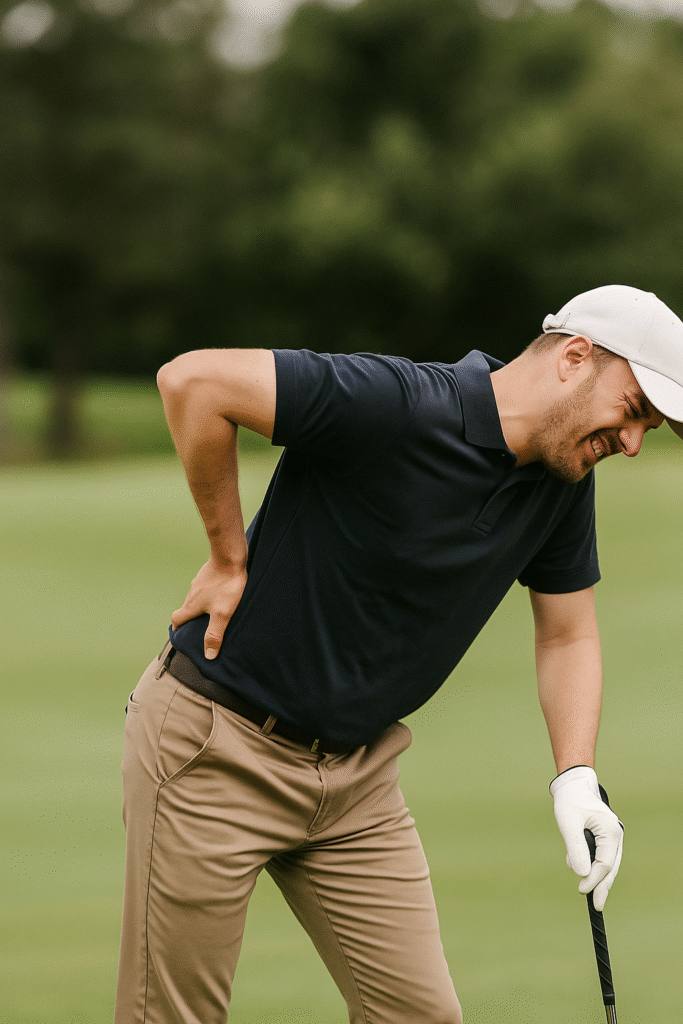Introduction Do you feel sharp knee pain every time you climb stairs? You’re not alone. Many adults between the ages of 35 and 70 experience discomfort in their knees when going up or down stairs. For busy, active people in Surrey and Delta, this can be frustrating — especially when you want to stay mobile, …
Introduction
Do you feel sharp knee pain every time you climb stairs? You’re not alone. Many adults between the ages of 35 and 70 experience discomfort in their knees when going up or down stairs. For busy, active people in Surrey and Delta, this can be frustrating — especially when you want to stay mobile, fit, and independent. The good news: physiotherapy can help uncover the cause and guide you back to pain-free movement.
Common Causes of Knee Pain on Stairs
Knee pain with stair climbing often points to specific conditions:
- Patellofemoral Pain Syndrome (PFPS) – when the kneecap doesn’t track properly over the femur, leading to pain in the front of the knee.
- Osteoarthritis (OA) – thinning cartilage causes “bone-on-bone” grinding, especially noticeable when knees bear more load on stairs.
- Tendinitis – irritation of the patellar or quadriceps tendon, often worse with activity.
- Weak glutes or quads – muscle imbalance forces the knee joint to do extra work.
Why Stairs Trigger Pain
Stair climbing requires 3–4x your body weight through the knee joint. For someone with an underlying condition, this extra stress makes pain flare. That’s why you may feel fine walking on level ground but sore when taking stairs.
How Physiotherapy Helps Knee Pain
At Physiatrix Rehab (Surrey & Delta), our physiotherapists start with a thorough assessment to determine the exact cause of your knee pain. Based on your unique condition, treatment may include:
- ✅ Manual therapy to improve joint mobility and reduce stiffness
- ✅ Strength training to build quads, hamstrings, and glutes for better knee support
- ✅ Taping or bracing to improve kneecap alignment
- ✅ Shockwave therapy or acupuncture (if indicated) to reduce inflammation and pain
- ✅ Custom orthotics if foot mechanics are contributing to knee strain
Self-Help Tips at Home
While you’re waiting for your appointment, here are safe strategies to reduce pain:
- Take stairs one step at a time using the handrail.
- Do mini-squats and bridges to strengthen legs and glutes.
- Apply ice for 10–15 minutes after activity to reduce irritation.
- Wear supportive shoes — avoid flats or worn-out sneakers.
When to See a Physiotherapist
If knee pain on stairs is persistent, worsening, or limiting your lifestyle, it’s time to get professional help. The earlier you address the cause, the easier it is to return to pain-free activity and prevent long-term joint damage.
✅ Take the Next Step
At Physiatrix Rehab, we help adults in Surrey and Delta stay active, healthy, and pain-free. Whether your knee pain is from arthritis, tendon issues, or muscle imbalance, our team can design a plan to get you back on track.
👉 Book Your Knee Pain Assessment Today
FAQ
Q: Why does my knee hurt more on stairs than walking?
Because stairs put 3–4x more stress on the knee joint, underlying issues like arthritis or patellofemoral pain are magnified.
Q: Can physiotherapy fix knee pain on stairs?
Yes. Through strengthening, manual therapy, and corrective exercise, most patients experience significant improvement.
Q: Is knee pain on stairs always arthritis?
No. Arthritis is one cause, but many patients have tendon or alignment issues that respond well to physiotherapy.






